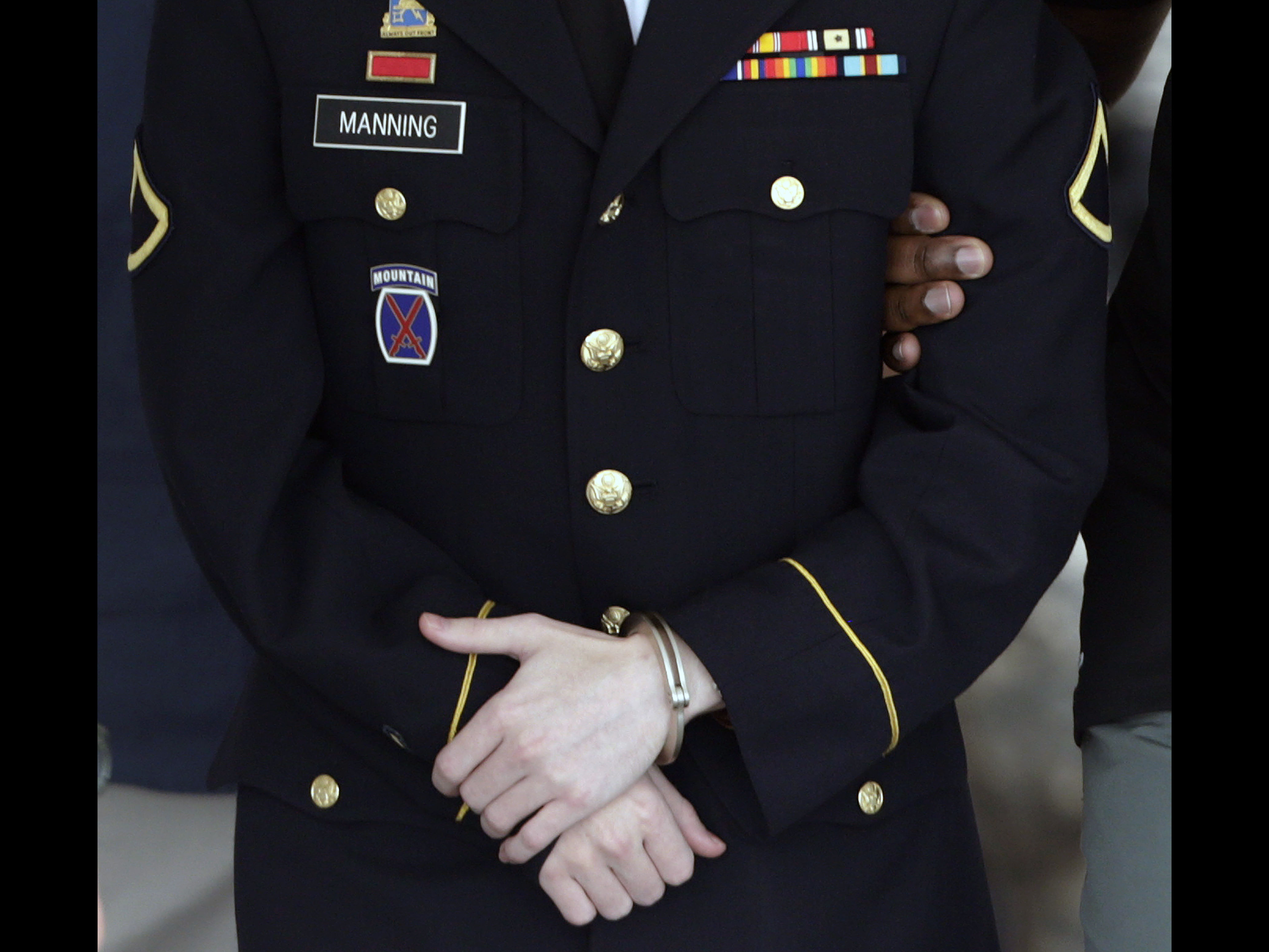On Tuesday 30 July 2013, a military court found U.S. Army Private Bradley Manning guilty of 19 charges, including five counts of espionage and five counts of theft. Free expression and press freedom organisations were among the first to respond.
On Tuesday 30 July 2013, a military court handed down one of the most significant rulings for whistleblowers and free expression advocates when it found U.S. Army Private Bradley Manning guilty of 20 charges, including five counts of espionage and five counts of theft. The sentencing hearing, which could take weeks, will determine whether Manning will spend the rest of his life in jail.
Private Manning shared classified military information with the online publisher Wikileaks in 2009. He was arrested in June 2010 and charged two years later with more than 20 offenses, including charges of violating the Espionage Act and aiding the enemy.
Information leaked by Manning shows evidence of war crimes committed by the US. Yet, instead of prosecuting the people behind these crimes, the person who brought them to the attention of the public is the one being charged. This is the source of much of the anger surrounding the case, and free expression and press freedom organisations have
been among the first to respond.
The fatal shooting of Reuters employees by the army in 2007 is just one example of the type of information made public courtesy of Manning and Wikileaks. Reporters Without Borders (RSF) asks, “Should this reality have been concealed from the U.S. public and international opinion? Which was more serious – committing such crimes or revealing them to the public?”
No one has been nor will be held accountable for the warcrimes in Collateral Murder except #Manning: http://t.co/tbJar75fNf #justice?
— Birgitta Jónsdóttir (@birgittaj) July 30, 2013
IFEX members have been critical of these convictions, just as they were when Manning was originally charged. Many groups have expressed relief at the acquittal of the soldier on the most serious charge leveled against him, that of “aiding the enemy”. That charge alone could have meant life in prison without parole. Manning’s defence lawyer, David Coombs, responded to the acquittal by saying, “We won the battle, now we need to go win the war. Today is a good day, but Bradley is by no means out of the fire.” Still, outrage directed at the U.S. government for the way they have treated Manning, both in detention and in the courtroom, remains.
Concerns over the implications of this ruling range from the impact on traditional media, digital rights, and international relations, to what distinguishes a whistleblower from a traitor.
If the gov equates being a #whistleblower with espionage, what is the future of journalism in this country? ask ccr: http://t.co/KE6yuHPyRm
— Dr Agnes Callamard (@AgnesCallamard) July 31, 2013
“President Obama should give Bradley Manning a full presidential pardon. If he does not, how will the US government hold its head high and tell other governments that they should protect freedom of information and free speech,” asked ARTICLE 19 in the wake of the convictions.
In a statement about the verdict, Julian Assange, Wikileaks founder, said that “It can never be that conveying true information to the public is espionage”.
Index on Censorship refuted the allegations that Manning made the leaks for personal gain, while Human Rights Watch criticised the faults of the Espionage Act, noting that the government did not need to show any proof that the leaked information actually harmed national security, and that Manning could not defend himself by showing that the information was of strong public importance.
Amazing you can be convicted of ESPIONAGE and the prosecution doesn’t have to prove intent to help other govts, or that you caused any harm.
— Trevor Timm (@trevortimm) July 30, 2013
Digital rights group the Electronic Frontier Foundation (EFF) found the decision to continue “a trend of government prosecutions that use familiarity with digital tools and knowledge of computers as a scare tactic”. They said that in these cases, the prosecution portrays the actions of someone using a computer as “more dangerous or scary than they actually are”.
The prosecution made a point of the fact that the leaks were made available online, which made them accessible to enemies of the United States. By that same logic, all major U.S. media outlets with websites are making information available to enemies of the United States on a daily basis. For the time being, Manning’s acquittal of “aiding the enemy” means there is no precedent for accusing media outlets of similar charges.
The fear now is that the repercussions of this case will have a chilling effect on potential whistleblowers hoping to share information for the public good. Says the Committee to Protect Journalists (CPJ),”This aggressive prosecution has sent a clear message to would-be leakers.”
#Manning trial was govt attempt to intimidate anyone who might consider revealing valuable information in the future http://t.co/qBAljA6V6X
— ACLU National (@ACLU) July 30, 2013
However, not all government officials feel the same way about whistleblowers. Republican Senator Chuck Grassley, famous for personally aiding whistleblowers in their battles against rule-breaking officials, has proposed a National Whistleblower Day, which would fall on 30 July. That date marks the 235th anniversary of one of the earliest laws supporting whistleblowers, implemented by the Founding Fathers in the Continental Congress during the Revolutionary War. Though the date was chosen to honour those first whistleblower defenders, if it is implemented, National Whistleblower Day will also be marking a very different anniversary.



